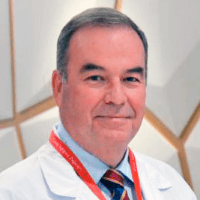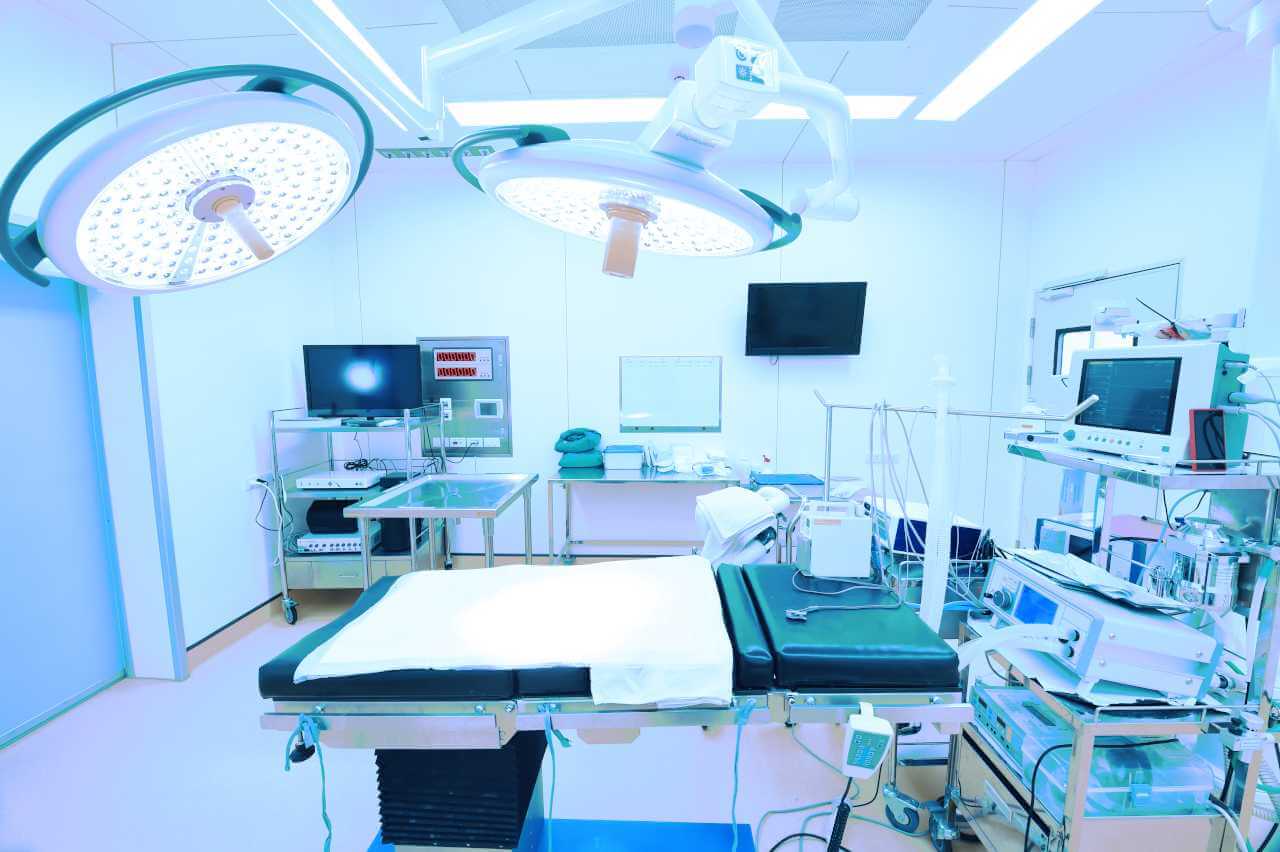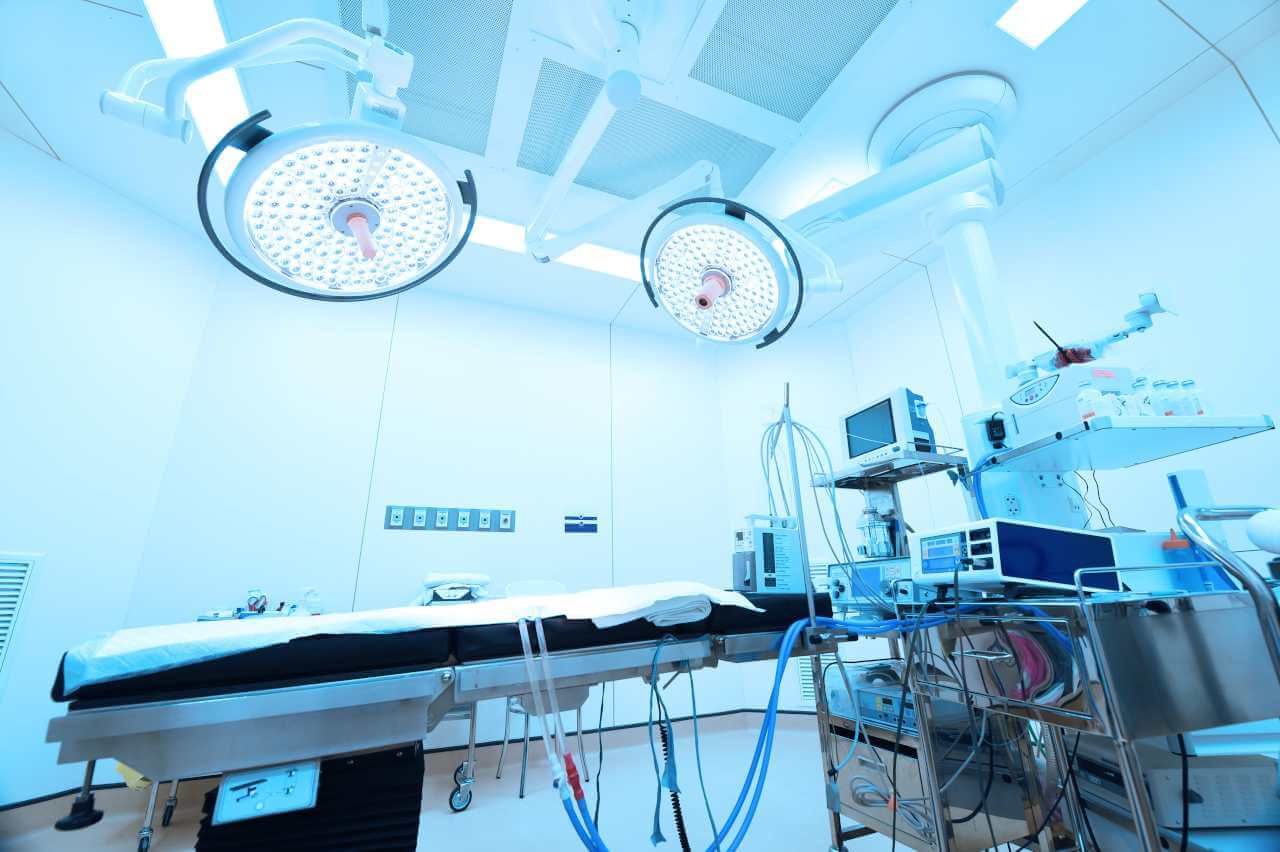
The program includes:
- Initial presentation in the clinic
- clinical history taking
- review of medical records
- physical examination
- laboratory tests:
- complete blood count
- general urine analysis
- biochemical blood test
- inflammation markers (CRP, ESR)
- blood coagulation analysis (aPTT, PT, INR)
- neurological examination
- cerebrovascular doppler ultrasound
- neuropsychological tests:
- EEG (electroencephalography)
- SEPs (somatosensory evoked potentials)
- VEPs (visually evoked potentials)
- BAEP tests (brainstem auditory evoked potentials)
- MRI of the head
(if indicated clinically, additional cost is 800€) - nursing services
- consultation of related specialists
- treatment by chief physician and all leading experts
- explanation of individual treatment plan
Required documents
- Medical records (if availale)
Service
You may also book:
 BookingHealth Price from:
BookingHealth Price from:
About the department
The Department of Neurology and Epileptology at the Memorial Bahсelievler Hospital Istanbul offers the full range of diagnostic and therapeutic services in the field of its competence. The medical facility specializes in the diagnostics and treatment of diseases of the brain and peripheral nerves, headaches, epilepsy, sleep disorders, muscle diseases, multiple sclerosis. The department has the most advanced medical equipment for various examinations and therapeutic manipulations. The team of specialists consists of highly qualified neurologists who regularly undergo advanced training courses in order to keep up with the times and master the most advanced techniques in this medical field. The department is headed by Prof. Dr. med. Mehmet Ali Akalın.
Prior to treatment, the doctors accurately study the patient's medical history, carry out diagnostic examinations, including CT and MRI scans, angiography and others. In especially complex clinical cases, the specialists from related fields are involved in the therapeutic process, as it is extremely important to determine the etiological cause of the development of pathology in order to select the optimal therapy in the future.
Of particular interest to the department's specialists are cerebrovascular diseases. These include vascular lesions of the brain, head and neck. These pathologies lead to hypoxia and damage to the brain substance. Stroke poses the greatest danger among these diseases. It is the second most frequent cause of death in the world. Among the risk factors of stroke are high cholesterol levels, diabetes mellitus, sedentary lifestyle, smoking, overweight, etc. The department's doctors carry out preventive measures aimed at reducing the risk of stroke.
The department admits many patients with epilepsy. This disorder of the central nervous system disrupts the activity of the brain, causing seizures and loss of consciousness. As a rule, the department's specialists prescribe conservative therapy for elimination of epileptic seizures, but in especially complex cases, surgical intervention can be performed. The timely initiation of antiepileptic therapy is extremely important, since the treatment success and the activity of further progression of the pathology depend on it.
The department often deals with the treatment of elderly patients with memory impairments. The most common pathologies are Parkinson's disease and Alzheimer's disease. Parkinson's disease is the second most common neurodegenerative disorder and is considered the most common cause of motor impairment in humans. The main symptom is hand tremor. If not treated, the disease progresses – it becomes difficult for a person to walk, talk and lead his usual way of life. Like Parkinson's disease, Alzheimer's disease is caused by degenerative changes in the nerve cells. It is characterized by a slower progression and is manifested by memory loss, speech problems and difficulties with self-care – patients can not dress, wash, eat. Thanks to advanced medicines and techniques, the department's specialists strive to slow down or stop the development of these diseases as much as possible, thereby maximizing the quality of life of the patients.
The department's clinical focuses include:
- Diagnostics and treatment of cerebrovascular diseases
- Intracerebral hemorrhage
- Cerebrovascular malformations
- Ischemic stroke
- Hemorrhagic stroke
- Lesions of the arteries of the brain and neck in the case of systemic vasculitis
- Subarachnoid hemorrhage
- Vascular dementia
- Arteriovenous malformations
- Venous angiomas
- Cerebral embolism
- Diagnostics and treatment of migraines
- Diagnostics and treatment of epilepsy
- Diagnostics and treatment of peripheral neuropathy
- Brachial plexus injury
- Thoracic outlet syndrome
- Ulnar nerve entrapment
- Peroneal nerve entrapment
- Meralgia paresthetica
- Carpal tunnel syndrome
- Diagnostics and treatment of multiple sclerosis
- Diagnostics and treatment of muscle diseases
- Becker muscular dystrophy
- Duchenne muscular dystrophy
- Myotonic dystrophy
- Congenital myopathies
- Metabolic myopathies
- Mitochondrial diseases
- Polymyositis
- Inflammatory muscle diseases
- Diagnostics and treatment of Parkinson's disease
- Diagnostics and treatment of Alzheimer's disease
- Diagnostics and treatment of brain and spinal cord tumors
- Diagnostics and treatment of sleep disorders
- Diagnostics and treatment of other neurological pathologies
Curriculum vitae
Professional Career
- Since 2018 Neurologist, Memorial Bahсelievler Hospital Istanbul, Istanbul, Turkey.
- 2000 - 2018 Lecturer in the Department of Neurology, Cerrahpaşa Faculty of Medicine, Istanbul University, Istanbul, Turkey.
- 1995 - 2000 Medical Specialist in the Department of Neurology, Cerrahpaşa Faculty of Medicine, Istanbul University, Istanbul, Turkey.
- 1991 - 1995 Neurologist, Çan Devlet Hastanesi, Istanbul, Turkey.
- 1990 - 1991 Neurologist, Kars Harakani Devlet Hastanesi, Kars, Turkey.
- 1985 - 1990 Training in Neurology, Faculty of Medicine at the Istanbul University, Istanbul, Turkey.
- 1982 - 1983 Internist (military service), Medical Garrison, Turkey.
- 1981 - 1982 General Practitioner, Clinic in Istanbul, Turkey.
- 1981 - 1982 Assistant Anesthesiologist, hospital at the Istanbul University, Istanbul, Turkey.
Higher Education and Postgraduate Training
- Since 2012 Professorship, Istanbul, Turkey.
- 2000 - 2012 Assistant Professorship, Istanbul, Turkey.
- 1981 - 1990 Specialized training in Neurology, Cerrahpaşa Faculty of Medicine, Istanbul University, Istanbul, Turkey.
- 1975 - 1981 Study of Human Medicine, Cerrahpaşa Faculty of Medicine, Istanbul University, Istanbul, Turkey.
Participation in Professional Trainings, Courses and Conferences
- 1995 - 2018 Participation in consultations on complex neurological pathologies, Cerrahpaşa Faculty of Medicine, Department of Neurology (twice a month).
- Courses in Turkish and English on the treatment and diagnostics of neuromuscular diseases, impaired consciousness, cognitive semiotics, Cerrahpaşa Faculty of Medicine.
- 2010 - 2016 Neurological semiotics, Cerrahpaşa Faculty of Medicine, Department of Neurology (four times a month).
- 2010 - 2016 Working Group on Neuromuscular Diseases, Turkish Neurological Society, Courses on Neuromuscular Diseases.
- Participation as a speaker or listener at the national and international congresses on neurology, internal medicine, physiotherapy and rehabilitation, symposia and congresses on neuropathic pain.
Memberships in Professional Societies
- Editor of the Nobel Medicus.
- Member of the Turkish Advisory Board on Clinical Publications.
- Membership on the Editorial Advisory Board of Trakya University Journal.
- Turkish Medical Association.
- Board Member of the Turkish Neurological Society.
- Turkish Association for Muscular Diseases.
- Turkish Neuropsychiatric Society.
- Istanbul University Alumni Association.
- Robert College Alumni Association.
Photo of the doctor: (c) Memorial Bahçelievler Hospital
About hospital
The Memorial Bahçelievler Hospital Istanbul is an advanced multidisciplinary medical center that began its clinical practice in 2018. It is part of the world famous Memorial Healthcare Group. The hospital was designed in accordance with the very latest standards of modern architecture with the aim of providing top-class medical services in a pleasant and patient-oriented environment. It is worth noting that the interior of the medical facility is full of live plants, which have a positive impact on people and their mood. The hospital is awarded the prestigious LEED Platinum Certificate, confirming the highest level of environmental friendliness and safety of the buildings of the medical complex.
The hospital has 320 beds for patient hospitalization. The medical and technical base of the hospital is one of the best and most advanced in Turkey – modern diagnostic rooms with MRI, CT, PET-CT scanners, gamma cameras, X-ray equipment, mammography systems and other equipment, 15 operating rooms, including for robot-assisted, endoscopic and hybrid surgical interventions, intensive care units, etc. The hospital also has a high-performance state-of-the-art Elekta Versa HD SIGNATURE system for radiation therapy.
The powerful technical resources of the hospital are complemented by a highly professional medical staff, who have achieved significant success not only at the national level, but also in the international medical arena. The doctors and nursing staff of the hospital are distinguished by excellent medical qualifications, as well as humane and compassionate attitude towards each patient. They strongly support their patients on their way to recovery.
The medical center admits not only Turkish citizens for treatment, but also patients from 92 countries of the world, and therefore it boasts a wealth of experience in serving international patients with clinical cases of varying complexity.
Photo: (c) Memorial Bahçelievler Hospital, (c) depositphotos
Accommodation in hospital
Patients rooms
The patients of the Memorial Bahçelievler Hospital Istanbul live in cozy rooms with an excellent layout and modern design. The standard patient rooms are equipped with a comfortable automatically adjustable bed, a bedside table, a table and a chair, a wardrobe, a sofa for receiving visitors. The patient room also includes a TV, a telephone and Wi-Fi. Each room has an ensuite bathroom with shower and toilet. The hospital also provides patients with enhanced-comfort rooms corresponding to a five-star hotel.
Meals and Menus
The patient and the accompanying person are offered tasty and balanced three meals a day. If for some reason you do not eat all foods, you will be offered an individual menu. Please inform the medical staff about your food preferences prior to treatment.
Further details
Standard rooms include:
Accompanying person
During the inpatient program, the accompanying person can live with the patient in a patient room or a hotel of his choice. Our managers will help you choose the most suitable option.
Hotel
During an outpatient program, the patient can stay at the hotel of his choice. Our managers will help you choose the most suitable option.




